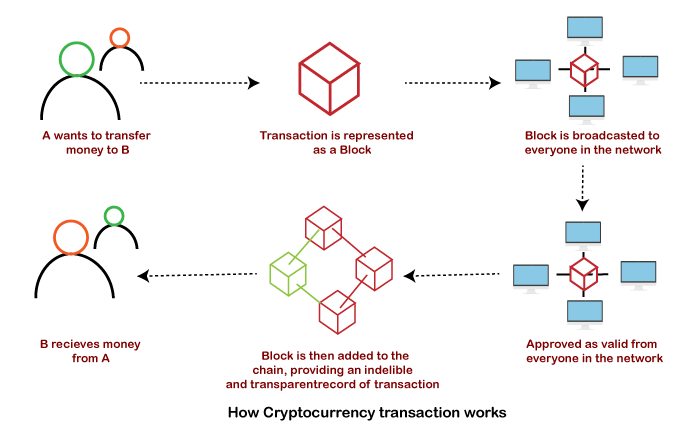Cryptocurrency
Almost 74% of ransomware revenue in 2021 — over $400 million worth of cryptocurrency — went to software strains likely affiliated with Russia, where oversight is notoriously limited. https://longfavor.com However, Russians are also leaders in the benign adoption of cryptocurrencies, as the ruble is unreliable, and President Putin favours the idea of “overcoming the excessive domination of the limited number of reserve currencies.”
There are also centralized databases, outside of blockchains, that store crypto market data. Compared to the blockchain, databases perform fast as there is no verification process. Four of the most popular cryptocurrency market databases are CoinMarketCap, CoinGecko, BraveNewCoin, and Cryptocompare.
On 6 August 2014, the UK announced its Treasury had commissioned a study of cryptocurrencies and what role, if any, they could play in the UK economy. The study was also to report on whether regulation should be considered. Its final report was published in 2018, and it issued a consultation on cryptoassets and stablecoins in January 2021.
At present, India neither prohibits nor allows investment in the cryptocurrency market. In 2020, the Supreme Court of India had lifted the ban on cryptocurrency, which was imposed by the Reserve Bank of India. Since then, an investment in cryptocurrency is considered legitimate, though there is still ambiguity about the issues regarding the extent and payment of tax on the income accrued thereupon and also its regulatory regime. But it is being contemplated that the Indian Parliament will soon pass a specific law to either ban or regulate the cryptocurrency market in India. Expressing his public policy opinion on the Indian cryptocurrency market to a well-known online publication, a leading public policy lawyer and Vice President of SAARCLAW (South Asian Association for Regional Co-operation in Law) Hemant Batra has said that the “cryptocurrency market has now become very big with involvement of billions of dollars in the market hence, it is now unattainable and irreconcilable for the government to completely ban all sorts of cryptocurrency and its trading and investment”. He mooted regulating the cryptocurrency market rather than completely banning it. He favoured following IMF and FATF guidelines in this regard.
In 2021, 17 states in the US passed laws and resolutions concerning cryptocurrency regulation. This led the Securities and Exchange Commission to start considering what steps to take. On 8 July 2021, Senator Elizabeth Warren, part of the Senate Banking Committee, wrote to the chairman of the SEC and demanded answers on cryptocurrency regulation due to the increase in cryptocurrency exchange use and the danger this posed to consumers. On 5 August 2021, the chairman, Gary Gensler, responded to Warren’s letter and called for legislation focused on “crypto trading, lending and DeFi platforms,” because of how vulnerable investors could be when they traded on crypto trading platforms without a broker. He also argued that many tokens in the crypto market may be unregistered securities without required disclosures or market oversight. Additionally, Gensler did not hold back in his criticism of stablecoins. These tokens, which are pegged to the value of fiat currencies, may allow individuals to bypass important public policy goals related to traditional banking and financial systems, such as anti-money laundering, tax compliance, and sanctions.
Cryptocurrency trump
While viewed by supporters as a ticket to big returns and financial freedom, Bitcoin and other cryptocurrencies are known for their volatility and have faced government crackdowns in several parts of the world.
Gensler’s SEC sued crypto companies and worked to regulate the industry, which the chairman said he believed was at least partially made up of securities that were trading illegally. The SEC also partnered with other regulators, including the Department of Justice, going after crypto fraudsters — most notably Sam Bankman-Fried, the infamous CEO of FTX.
Bitcoins are created, or “mined,” by tens of thousands of computers in massive data centers, contributing significantly to carbon emissions and environmental degradation. Bitcoin mining, which represents the lion’s share of crypto energy consumption, uses as much as 0.9% of global demand for electricity – similar to the annual energy needs of Australia.

While viewed by supporters as a ticket to big returns and financial freedom, Bitcoin and other cryptocurrencies are known for their volatility and have faced government crackdowns in several parts of the world.
Gensler’s SEC sued crypto companies and worked to regulate the industry, which the chairman said he believed was at least partially made up of securities that were trading illegally. The SEC also partnered with other regulators, including the Department of Justice, going after crypto fraudsters — most notably Sam Bankman-Fried, the infamous CEO of FTX.
Cryptocurrency definition
According to PricewaterhouseCoopers, four of the 10 biggest proposed initial coin offerings have used Switzerland as a base, where they are frequently registered as non-profit foundations. The Swiss regulatory agency FINMA stated that it would take a “balanced approach” to ICO projects and would allow “legitimate innovators to navigate the regulatory landscape and so launch their projects in a way consistent with national laws protecting investors and the integrity of the financial system.” In response to numerous requests by industry representatives, a legislative ICO working group began to issue legal guidelines in 2018, which are intended to remove uncertainty from cryptocurrency offerings and to establish sustainable business practices.
Crypto purchases with credit cards are considered risky, and some exchanges don’t support them. Some credit card companies don’t allow crypto transactions either. This is because cryptocurrencies are highly volatile, and it is not advisable to risk going into debt — or potentially paying high credit card transaction fees — for certain assets.
In 2022, cryptocurrencies attracted attention when Western nations imposed severe economic sanctions on Russia in the aftermath of its invasion of Ukraine in February. However, American sources warned in March that some crypto-transactions could potentially be used to evade economic sanctions against Russia and Belarus.

According to PricewaterhouseCoopers, four of the 10 biggest proposed initial coin offerings have used Switzerland as a base, where they are frequently registered as non-profit foundations. The Swiss regulatory agency FINMA stated that it would take a “balanced approach” to ICO projects and would allow “legitimate innovators to navigate the regulatory landscape and so launch their projects in a way consistent with national laws protecting investors and the integrity of the financial system.” In response to numerous requests by industry representatives, a legislative ICO working group began to issue legal guidelines in 2018, which are intended to remove uncertainty from cryptocurrency offerings and to establish sustainable business practices.
Crypto purchases with credit cards are considered risky, and some exchanges don’t support them. Some credit card companies don’t allow crypto transactions either. This is because cryptocurrencies are highly volatile, and it is not advisable to risk going into debt — or potentially paying high credit card transaction fees — for certain assets.
In 2022, cryptocurrencies attracted attention when Western nations imposed severe economic sanctions on Russia in the aftermath of its invasion of Ukraine in February. However, American sources warned in March that some crypto-transactions could potentially be used to evade economic sanctions against Russia and Belarus.



現在就與我們聯絡
專人為你評估最合適方案